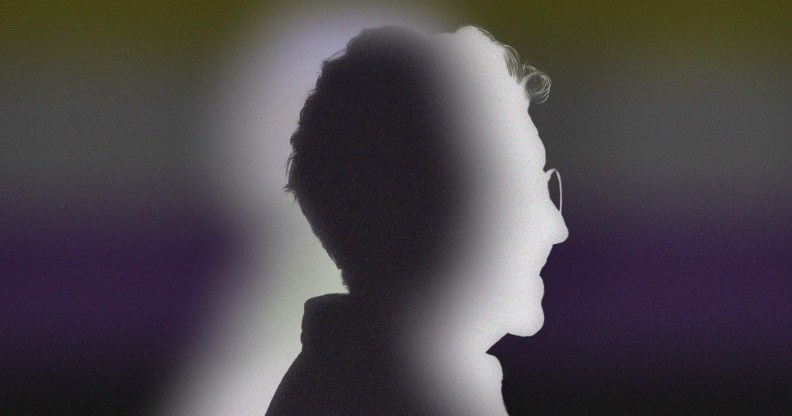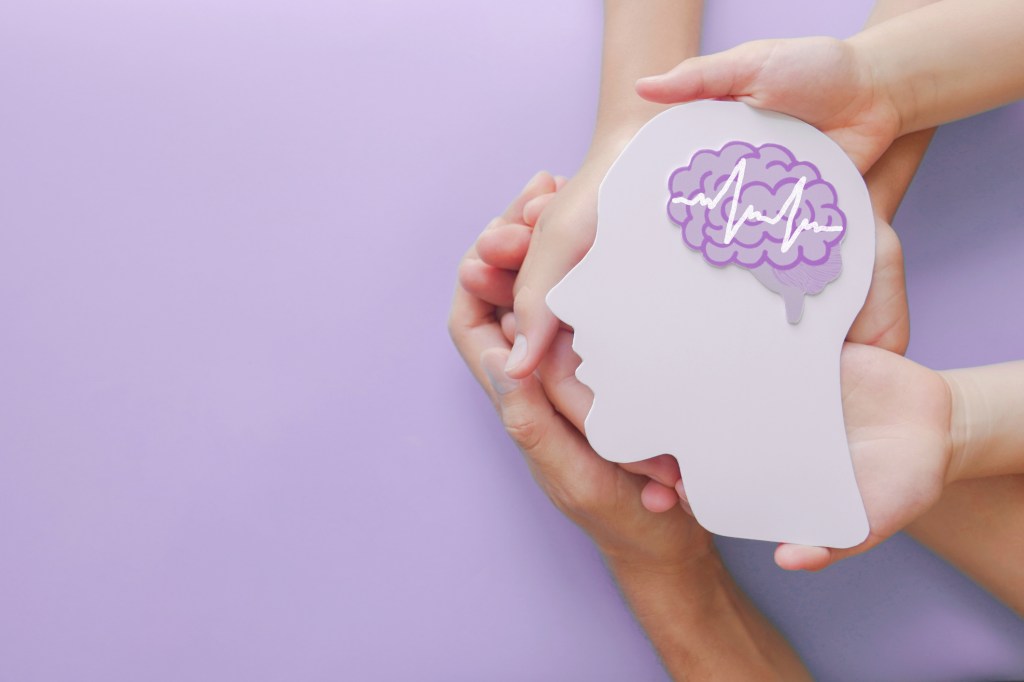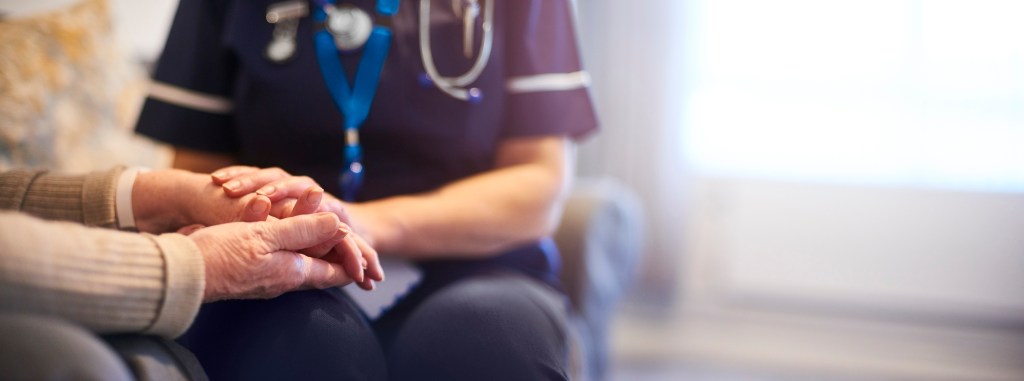‘Being diagnosed with early-onset dementia gave me freedom to explore my gender identity’

Dawn was diagnosed with dementia in their late fifties. (PinkNews)
Around a decade ago, Dawn noticed they were “forgetting things”.
“I had several accidents in the kitchen where, for example, I would put a pan of boiling water on the hob to prepare eggs or pasta or something, and I if I walked out of the kitchen I forgot that it was on and the water would boil away,” Dawn, whose name has been changed, tells PinkNews.
With some nervousness, Dawn went to their doctor and after a number of tests, they were diagnosed with early onset dementia.
Of the estimated 944,000 people living with dementia in the UK, around 70,800 (7.5 per cent) have early-onset dementia, where they developed symptoms before the age of 65.
It was an earth-shattering diagnosis – and the last thing Dawn expected while still in their fifties. Dementia is an incurable condition. All treatment can currently do is slow the progress of the disease. 10 years on, it’s still a lot for Dawn to process.
“I’m still here, I’m still queer, but I now have increasing difficulty with language. My mobility is beginning to decrease a bit. So it’s a long, long journey.
“I’m doing the best that I can – I think that’s what we all do. I faced it with as much courage and stoicism as I possibly could, but it is what it is. And it’s scary. It can be scary at times, certainly.”
The last decade has often been challenging for Dawn, but it’s also been a time of exploration. It’s only in the last few years that they came to realise they were non-binary and felt able to come out and start the process of transitioning.

“It’s a curious thing. For all of the challenges that a dementia diagnosis can present, what I’m discovering – and I’ve heard this from some others, not everyone but some – that it can also present surprises and sometimes gifts depending on how you see it, and one of the things that it did for me was give me permission for me to continue my gender exploration.”
Exploring their gender hasn’t always been easy for Dawn. They were born into what they describe as a “very heteronormative family” and came out as gay just a few years after the Stonewall riots in 1969.
“I identified as a gay man because we really only had two letters in the alphabet soup at that time – it was lesbian and gay and there wasn’t a whole lot else.”
‘I’ve been queer from the cradle and I want to be queer to the grave’
Discovering their “essential self” has been an empowering experience for Dawn, but they’ve also had to learn how to navigate a healthcare system which is not set up for LGBTQ+ people – especially trans and non-binary folk.
Since they received their dementia diagnosis in 2013, they’ve lived in three different countries. In the first two, they often dealt with consultants and doctors who weren’t attuned to their gender identity or their queerness.

A couple of years ago, they decided to relocate to another European country, and it was there that they finally found the empathetic, understanding care they needed.
“Now I am at a place where I am getting gender-affirming healthcare, medical care, I’m transitioning, I’m taking hormone therapy here. The nurses, they get it, they understand.
“When I first came here, one of the first questions [my GP] asked me was, ‘Which pronouns do you prefer to use?’ She asked me because she was trained to do that. So it’s much, much better.”
Having an affirming healthcare team who understand their identity is vital for Dawn, but it’s also deeply important for all other LGBTQ+ people who are living with dementia. Sadly, many who work in the area are still not properly trained on issues like pronouns and gender diversity.
“I’ve been queer from the cradle and I want to be queer to the grave. I don’t want my end-of-life healthcare to be heteronormative in nature,” Dawn says.
That’s why they’re sharing their story. They want to stamp out what they call the “presumption of heteronormativity” in dementia care.
Their message to healthcare providers is simple and to the point: “Do your f**king homework. It’s not rocket science, for f**k’s sake.”
“When they talk about patient-centred care – I hear that expression a lot – you better make goddamn sure that the patient at the centre is [rowing] the boat.”
‘Crucial that everyone affected by dementia gets support ‘
Dara de Burca, director of dementia support and partnerships at Alzheimer’s Society, echoes what Dawn says on the intricacies of dementia care for LGBTQ+ people. Queer people often experience “additional obstacles” that cisgender and heterosexual people might not face, de Burca says.
“It’s crucial that everyone affected by dementia gets support that meets their individual needs, regardless of their gender identity or sexuality.
“Whether it’s help accessing services, emotional support, knowing your rights or support with planning ahead, Alzheimer’s Society is here to ensure that nobody affected by dementia has to face it alone.”
One in three people born in the UK today will develop dementia. Alzheimer’s Society vows to end the devastation caused by dementia, providing help and hope for everyone affected. For more information, visit alzheimers.org.uk or call Alzheimer’s Society’s Dementia Support line on 0333 150 3456.

